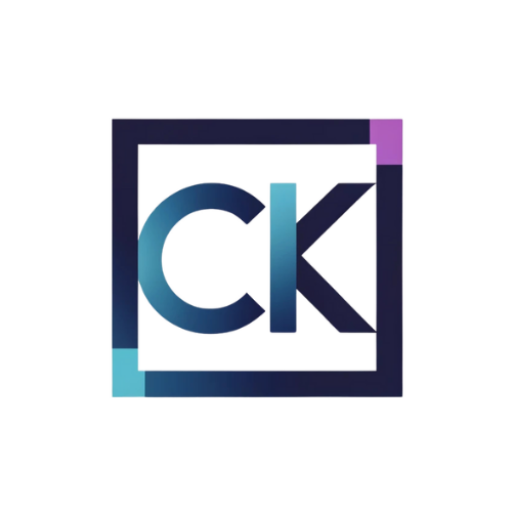Anúncios
Navigating the job market can be a daunting experience, particularly in an environment where competition is fierce and distinguishing oneself during the interview process is crucial. As job seekers, we are constantly searching for ways to make a lasting impression on potential employers, and one method that has gained considerable attention in recent discussions around interview preparation is the concept of “storytelling in interviews.” This innovative approach emphasizes the power of crafting personal narratives that effectively connect your unique experiences to the position you’re applying for, aiming to make you more memorable in the eyes of the interviewer.
Storytelling in interviews serves a dual purpose: it allows candidates to showcase their professional accomplishments while also providing a platform for them to express their personality, values, and individuality. Interviewers want to evaluate not just the qualifications and skills of applicants, but also their relatability and authenticity. By leveraging storytelling as a technique, you can significantly enhance your ability to engage with the interviewer, transforming a traditional question-and-answer format into a compelling and interactive conversation.
When preparing for an interview, it’s beneficial to take the time to reflect on your unique experiences and pinpoint key moments that demonstrate your skills, determination, and growth. For instance, think about a particular challenge you encountered in a previous role, how you tackled the situation, and the successful outcome that followed. By framing your experiences as stories, you can provide concrete examples that vividly illustrate your skills and competencies, allowing the interviewer to visualize your contributions as part of their team.
An effective structure for your storytelling is the STAR method – which stands for Situation, Task, Action, and Result. This framework will help you to articulate your experiences clearly and coherently, demonstrating your problem-solving abilities while allowing you to frame your narratives in a concise manner. When you share a story using this method, you create a captivating narrative that engages the interviewer while conveying essential information about your qualifications and work ethic. This organized structure can significantly improve the likelihood of your story resonating with your audience.
Moreover, it’s essential to tailor your stories to align with the company’s values, mission, and the specific role you are pursuing. Conduct thorough research on the organization’s mission statement, core values, and key projects to weave in relevant experiences that resonate with their objectives. This level of preparation demonstrates your genuine enthusiasm for the position and highlights your commitment to understanding the organization’s culture and goals. It can make your story even more compelling as it draws a direct line between your experiences and the potential contributions you could make to the company.
Anúncios
Additionally, it’s crucial to practice delivering your stories in a manner that feels natural and confident. Rehearsing your narratives can help you identify areas for improvement, such as pacing, clarity, and the overall flow of your story. However, it’s important to balance practice with spontaneity to ensure your responses feel genuine rather than overly scripted. Engaging in mock interviews with friends, family, or mentors can significantly enhance your storytelling skills and enable you to gather valuable feedback as you refine your approach.
Body language is another essential factor to consider while sharing your stories. Non-verbal cues can greatly impact how your narrative is received and perceived by interviewers. Maintaining eye contact, using hand gestures to emphasize key points, and adopting an open posture can create an inviting atmosphere that enhances engagement. This level of interaction increases the connection you establish with the interviewer, making your storytelling even more effective.
Furthermore, the emotional resonance of storytelling serves as another powerful tool during interviews. By infusing your narratives with passion or moments of vulnerability, you create an emotional connection that inspires empathy and interest from the interviewer. Sharing personal stakes in your experiences – such as how a project positively impacted your team or community – can leave a lasting impression, rendering your story more relatable and impactful as you aim to leave the right impression.
Nevertheless, it is essential to strike a balance when it comes to storytelling. Avoid overly lengthy or complicated stories that may overwhelm or cause the interviewer to lose interest. Aim to keep your narratives concise, focusing exclusively on the core elements that are most relevant to the position you’re seeking. Practicing brevity while maintaining the essence of your experiences is key to ensuring that your stories are both engaging and informative, leaving the interviewer with clear takeaways.
Incorporating quantifiable results into your stories can significantly enhance their impact, as numbers and metrics tend to make a lasting impression on interviewers. Whenever possible, include specific achievements that showcase your contributions in real terms. For example, discussing how you increased sales by a certain percentage, improved team efficiency, or reduced turnaround time can provide concrete evidence of your capabilities. These quantifiable results not only bolster the credibility of your story but also demonstrate the significant value you can bring to the organization.
Networking and seeking feedback from professionals in your field can also provide insights into effective storytelling techniques that resonate within your industry. Reach out to mentors, colleagues, or career coaches to gather advice on how to present your experiences in compelling and relevant ways. Their perspectives can help you refine your storytelling style, ensuring that it aligns with industry expectations and the specific preferences of potential employers.
In the evolving context of virtual interviews, where face-to-face interactions may lack physical presence, the importance of storytelling becomes even more prominent. Demonstrating the ability to convey energy and enthusiasm through your narrative can bridge the gap created by screens or digital platforms. Ensure that you maintain a warm tone, subtle vocal variety, and a genuine smile during your storytelling, making the virtual space feel more personal and inviting.
Incorporating industry-related anecdotes or stories that directly relate to the role you’re applying for can also enhance the relevance and appeal of your narratives. Understanding the latest trends or challenges in your field can provide meaningful context for your experiences, making them more relatable and insightful for the interviewer. This approach not only showcases your knowledge but also reflects your proactive engagement with industry developments, further positioning you as a strong candidate.
Finally, after the interview is over, do not underestimate the power of a well-crafted follow-up email. Use this opportunity to reiterate a key story you shared during the conversation. This final touch not only reinforces your qualifications in the interviewer’s mind but also serves as a helpful reminder of the connection you established during the interview itself. A thoughtful follow-up message is an excellent way to keep yourself top of mind as the interviewer makes their final decision.
Utilizing storytelling in your interview process is not merely a fleeting trend; it is an essential strategy for creating meaningful connections with potential employers. By approaching your interview as a narrative exchange rather than a rigid interrogation, you open the door to authentic conversations that highlight your unique qualifications and experiences. When you emphasize the importance of storytelling in your interview preparation, remember that authenticity remains key. Your personal stories should reflect who you genuinely are, what you’ve accomplished, and how those experiences align with the job you are seeking.
As you embrace this narrative-focused approach, you may find that interviews can transform from anxiety-inducing events into valuable opportunities for sharing your journey and aspirations. By harnessing the power of storytelling in a thoughtful and prepared manner, you empower yourself to leverage your experiences in ways that resonate with potential employers. Ultimately, storytelling can become a powerful platform for self-expression and professional connection, setting you apart in a competitive job market and enabling you to navigate the journey of securing meaningful employment with confidence and clarity.



